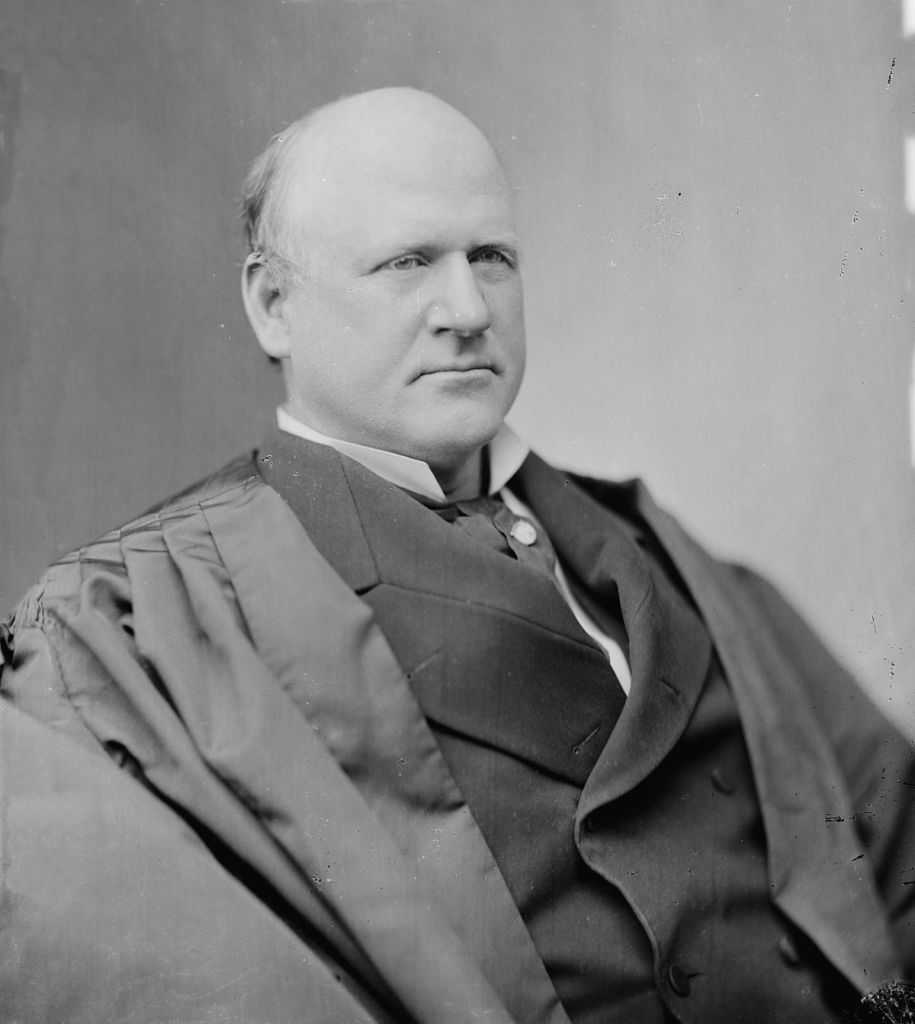Although I didn’t rank John Marshall Harlan in my Top 10 Greatest Americans, I do consider him to be American’s Brave Supreme Court Justice ever. He was a true American hero of equality.
In 1896, seven men heard Homer Plessy’s story about being forbidden to ride in the “whites only” section of a train coach by a state law of Louisiana. If Homer, a Louisianan of mixed race, wanted to ride, the state law said he had to ride in a coach set aside for black people.
Homer Plessy insisted that enforced segregation compromised the principle of legal equality and marked blacks as inferior. The seven men, all Supreme Court Justices, all voted that forced segregation was constitutional. The seven justices wrote: “If one race be inferior to the other socially, the constitution of the United States cannot put them upon the same place.”
This judgment legally separated the blacks and whites. It basically canceled the Fourteenth Amendment to the Constitution, which says: “No state shall make or enforce any law which shall abridge the privileges or immunities of citizens of the United States.” Those seven men cleared the way for legally sanctioned racism, intimidation, discrimination, segregation, terrorism, and persecution of black people for the next sixty years. For example, at the time of this ruling, in 1896, more than 100,000 Africian-Americans in Louisiana were registered to vote. Ten years later there were only about 1000. One lone man, however, said NO–Supreme Justice John Marshall Harlan. He wrote:
“In the eyes of the law, there is in this country no ruling class of citizens. There is no caste here. Our constitution is colorblind, and neither knows nor tolerates classes among citizens. In respect of civil rights, all citizens are equal before the law. The humblest is the peer of the most powerful. The arbitrary separation of citizens on the basis of race, while they are on a public highway, is a badge of servitude wholly inconsistent with the civil freedom and the equality before the law established by the Constitution. It cannot be justified upon any legal grounds.”
Who was John Harlan, this hero who dared to speak the truth against American racism in the highest court in the land? John Harlan of Kentucky, was a former slave-holder and defender of slavery. He had fought for the Union Army but had spoken against the Emancipation Proclamation (which did not apply to Kentucky). John Harlan did not free his slaves until the ratification of the Thirteenth Amendment forced him to in December 1865.
Six years later, in 1871, Harlan, former slave-holder, said: “I have lived long enough to feel and declare that the most perfect despotism that ever existed on this earth was the institution of African slavery. With slavery it was death or tribute. It knew no compromise, it tolerated no middle course. I rejoice that it is gone.”
When asked about his turn around on the issue of slavery, John Harlan would reply: “Let it be said that I am right rather than consistent.” What could have changed him so? History doesn’t give a clear answer, but something must have touched his heart.
The terrorism of the Ku Klux Klan in Kentucky pushed him toward equal rights. He was shocked by the arson, beatings, and murders. He became friends with a leading Republican, Benjamin Bristow, who was the United States Attorney for Kentucky. Bristow fearlessly prosecuted the white terrorists. Somehow Harlan saw the truth of the wickedness of American racial injustice, and when he did, he never looked back. He said: “The most perfect despotism that ever existed on this earth was the institution of African slavery.”
That is why John Harlan could stand alone in 1896 and boldly say: “In my opinion, the judgment this day rendered will, in time, prove to be quite as pernicious as the decision made by this tribunal in the Dred Scott Case.” Like a prophet John said: “The thin disguise of ‘equal’ accommodations will not mislead anyone, nor atone for the wrong this day done.”
For more American heroes of equality, go to: Off the RACE Track–From Color-Blind to Color Kind. Thank you.



Pingback: America’s Forgotten Freedom Fighters | Free Gas For Your Think Tank (Steve Simms Blogs From Nashville)
Pingback: What Skin Color Is Your Church? | Free Gas For Your Think Tank (Steve Simms Blogs From Nashville)
Pingback: 6 Reasons Why The Civil Rights Activits Didn’t Call Their Opponents “Haters” | Free Gas For Your Think Tank (Steve Simms Blogs From Nashville)